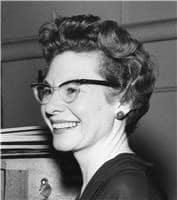Boston’s first woman cellist dies at 101
mainWinifred Mayes became the first woman in the Boston Symphony Orchestra’s string section when she beat 14 men in an audition for a cello vacancy in 1957.
She stayed in Boston for a dozen years before getting a better offer in 1970 from the Philadelphia Orchestra, where her husband Sameul Mayes was principal cellist. She slipped into the seat beside him as assistant principal cellist.
Winifred has died, aged 101.






They both left the BSO after the 1964 season, along with the de Pasquale brothers, to join (in Samuel’s case re-join) the PO. In 1970 she was appointed Assistant Principal and thus played next to her husband. Supposedly the mass exodus was in part due to everyone’s dissatisfaction with the transition from Munch to Leinsdorf.
iam not surprised they left the boston orchestra.
how can one replace a great conductor like munch
Only one dePasquale, Joe, principal viola. Bobby left the NYPO and Billy went from New Orleans to Philly.
Winnie was an absolute delight. Devoted to Sammy and her cello, she inspired generations of young musicians. Those in both the Boston and Philadelphia Orchestras were blessed to have her in their ranks.
The Boston Globe obituary, to which Norman gives a link, has a link in it to a YouTube profile of Winifred Mayes, on the occasion of her 100th birthday.
Watch it at:
https://www.youtube.com/watch?v=nn_wrFhHh9g
“Influential Female Cellists with Hannah Holman – Episode 5, Winifred Mayes”
Great! Thank you. But that’s the link to Episode 6. This is the one about Mayes:
https://www.youtube.com/watch?v=RNcolgLxcSY
Wow — when was the last time there were only 15 people in a major orchestra’s string section audition?
Jerome! That was my first thought on reading this article as well. An obituary article is perhaps not the appropriate place to get into this issue, but back in the 1970s and 1980s I knew several good string players who decided to hit the audition trail – which ain’t cheap. And a theme common to so many of them is that they seemed to have no notion, and had been given no notion by their teachers, of just how good you have to be to get into a full time professional orchestra (let’s forget about Big 5 and second and third tier and all that stuff for the moment). I’d hear them creak their way through the opening measures of Strauss’s Don Juan (on nearly every audition list for violinists) and think “don’t they listen — really listen — to recordings, performances or broadcasts? what makes them think that their level of achievement stands a chance in an audition? Can’t they imagine what the Strauss would sound like if the entire section could only match what they do?” Assuming music should have been their career at all, what they needed was experience in an entry-level orchestra and instead it was, well why not Boston, why not Cleveland? The irony is that if they were lucky — really lucky — and ended up where their talents warranted, they were bitter and angry about that fact.
My hunch is that music teachers leveled with their students more honestly back in 1957 — before the self-esteem/Culture of Narcissism/”me” era, with the consequence that the young musicians of that time self-deferred from the orchestras that were beyond them, and concentrated on where they stood a chance.
Or perhaps this is all just jealous grumblings from someone who was quite certain that, whatever level of achievement I’d reached, it wasn’t really professional level. Not professional in the sense of a genuine living income. No, I channeled my bountiful self-delusions into entirely different channels.
David Nelson’s advice is open-eyed and hard-heaed,– Real-Politik in music.
I’m impressed by the family connections,– husband an wife as principal and assistant principal cellists in an orchestra like the Philadelphia; Joseph de Pasquale and his three brothers, two violinists and a cellist, evidently all there too, and in their string quartet. I’d like to meet their parents. It recalls the three Berv brothers’ horns in the NBCSO’; the Feuermann, Kreisler, Ricci. Karajan, Busch, Ormandy, Schneider, and Jochum brothers.
Or Eleanor Aller & Felix Slatkin
Just asking ….
Nearly all comments so far seem to celebrate the family connections of members in the (US) orchestras. The question is ….
the similar family connections in the Vienna Phil seemed to have got nothing but flak on this site., e.g,. Ottensamers the clarinettists.
As I said, just asking …..
In that era of Winfred Mayer, 1950s, 60s and later, academic institutions in the US had a sort of “non-fraternisation” rule, i.e., no two family members are allowed to be in the same faculty/department in a university. The rationale was that there was real possibility of conflict of interests, e.g., would the baggage of belonging to the same family influence the otherwise platonic working relationship between two unrelated faculty members.
How and why orchestras in that era seemed so enlightened?
By the way, the “non-fraternisation” rule has gone the way of the dodo.